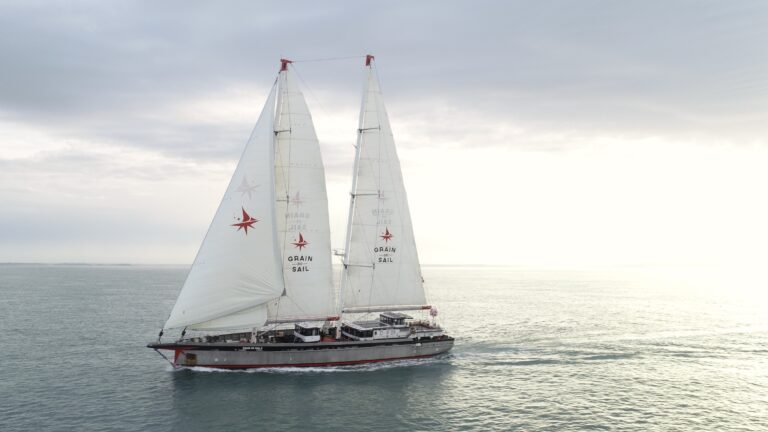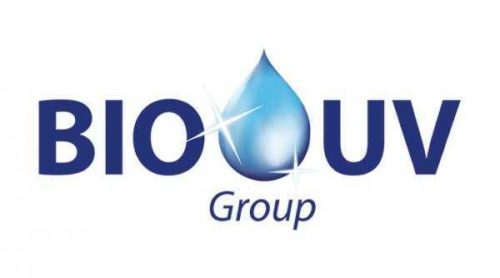The innovative Grain de Sail II cargo sail ship has set sail across the Atlantic with a state-of-the-art ballast water treatment system supplied by BIO-UV Group.
The vessel, based in St. Malo, France, transports French products to New York by sail before heading south to the Caribbean and loading locally grown organic products, such as cocoa and coffee beans.
The 52m wind-powered Grain de Sail II, christened in January this year, and built by French-headquartered shipbuilder Piriou Group – a long standing partner of the ballast water treatment system manufacturer – features a UV-based skid-mounted BIO-SEA L unit, installed with a Filtrex filter system. The system is designed to treat ballast water flow rates of 30m3/h.
“The successful delivery of Grain De Sail II, an aluminum-hulled schooner, marks a decisive step in the development of sustainable navigation. BIO-UV Group is committed to working with shipowners and shipyards that are pushing the boundaries of innovation and design to build a new generation of ships that respect the marine ecosystem,” said BIO-UV Group CEO Laurent-Emmanuel Migeon.
Wind-powered cargo ships particularly suit the ultra-compact, easy-to-use BIO-SEA L series due to their low flow rate ballasting requirements, ranging from 13 to 120m3/h. System components are delivered all-inclusive and can be supplied in various configurations, such as modular, split skid or full skid versions, allowing maximum adaptability for onboard system integration.
Loïc Briand, Managing Director of Morlaix-based Grain de Sail Shipping, owner of the eponymous vessel, said: “The successful build and delivery of this hugely innovative sustainable ship shows we are at the forefront of innovation in the rise of sustainable shipping across the maritime industry. By shipping goods across the Atlantic by cargo sailboat we have one of the lowest carbon footprints possible.”
Maxime Dedeurwaerder, BIO-SEA Maritime Business Unit Director, added: “Newbuild projects such as these are a great opportunity for BIO-UV Group to help reduce the environmental impact even further by preventing the migration of invasive species in the most effective way possible.”
BIO-SEA low flow rate ballast water treatment systems combine mechanical filtration and ultraviolet (UV) disinfection without any chemical treatment whatsoever.
The “L” range of BIO-SEA BWTS is specially designed to mee the ballasting needs of vessels with small pump capacities. All components, including the power supply, are integrated into the system, removing the need for a separate power cabinet, saving even more space.
In October last year, BIO-UV Group unveiled its smallest low-flow BIO-SEA BWTS yet. The new BIO-SEA L Mini is designed for ballast water processing capacities below 30m3/h.

About BIO-UV Group
For more than 35 years, BIO-UV Group has been designing, manufacturing, and marketing water treatment systems using ultraviolet radiation (UV-C), ozone, AOP, and salt electrolysis for various applications including swimming pools, aquaculture, aquariums, industrial process water, wastewater and drinking water. In 2011, it added ships’ ballast water treatment to its range. The company’s products are manufactured in its specialized production sites in Lunel and Muret, France, as well as in Glasgow, Great Britain, allowing it to respond quickly to the specific requirements of its customers worldwide. The company, listed on the stock exchange since July 2018, has a consolidated turnover of 43,1 million euros in 2023 and a current workforce of 160 employees. More than 50% of the group’s sales are exported. www.bio-uv.com
About Grain de Sail
The adventure Grain de sail was born in 2010 with our feet in the water in Morlaix, Western France and a bold idea to go to the other side of the world in the most eco-friendly way and to pick up chocolate and coffee with our own unique transportation method: the cargo sailboat! With our fleet of cargo sailboats we enable clean transportation and have pioneered the design of modern shipping powered by the wind.

